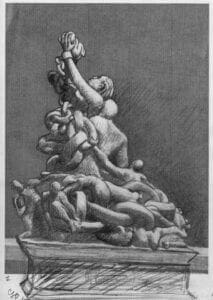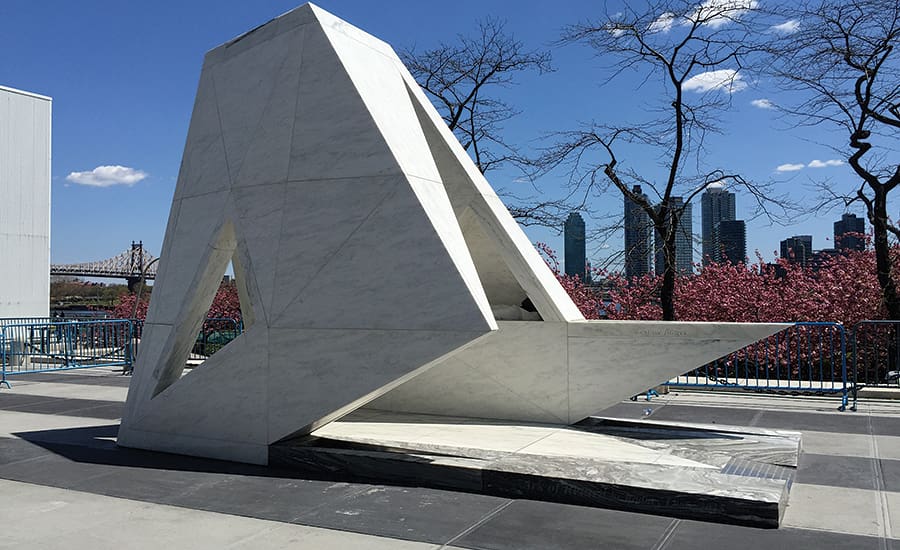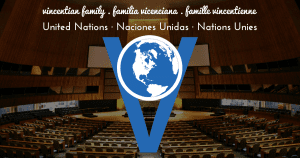The International Day for Remembrance of the Slave Trade and its Abolition
Sunday, August 23, 2020
“When you make men slaves you deprive them of half their virtue, you set them in your own conduct as example of fraud, rapine and cruelty, and compel them to live with you in a state of war.” – Equus Ama, an enslaved African
 Between 1525 & 1866 12.5 million Africans were forced from their homes against their will and shipped to the New World. Not all survived the brutal conditions onboard the ships designed to carry this human cargo. Roughly 2 million perished during the arduous two-month passages.
Between 1525 & 1866 12.5 million Africans were forced from their homes against their will and shipped to the New World. Not all survived the brutal conditions onboard the ships designed to carry this human cargo. Roughly 2 million perished during the arduous two-month passages.
The ships were horrific, built specifically to transport human beings. There was a tall wall separating the women from the men, guns were placed atop of the wall to show the strength of the captors.
The ships were dirty, no accommodations were made for sanitation, the captive slaves were forced to relieve themselves wherever they were, even as the men were shackled together in pairs. There were frequent breakouts of violent resistance.
The women were raped by the crew regularly, many arriving in the New World impregnated by the rapists.
Of the 12.5 million, approximately 25% were children.
If they were “fortunate” enough to survive the crossing and arrive on solid ground once again the horror continued, as they were sold into slavery, mostly to white owners.
Slavery in the New World was not considered unjust or irregular, it was commonplace. Even the Jesuits owned slaves in America. In fact, it was the slaves who build Georgetown University. The Jesuits have since seen the error of their ways and have begun reparations.
As I ponder this outrage, this crime against Gods beloved children, I wonder, is this where white privilege took hold? Looking at the numbers, over 12.5 million Africans, black people, were kidnapped, wrenched from their homes and families, by a much smaller number of white people. The white captors treated them without conscience, demonstrating their self-imposed superiority always. The white captors used brutal force to control the black slaves, setting up an unjust system of white privilege that we still witness today.
At the United Nations, on August 23, 2017, Irina Bokova, the Director-General of UNESCO at the time, while remembering the universal demand for freedom that led to the 1791 insurrection by slaves, stated, “Everyone must know the scale of the crime of the slave trade, the millions of lives broken and the impact on the fate of the continents up to this very day. Everyone must be fully informed of the struggle that led to its abolition, so that together we can build societies that are fairer and thus freer.”

In 2020, as the world is battling the COVID-19 pandemic we are witnessing once again, an unjust system of systemic racism. Where black and brown people are suffering the affects of the virus in greater numbers than the white population, partially because more of our essential workers are people of color. While white people are more likely to have jobs affording them the opportunity to stay home during the pandemic lockdown, people of color continue going to work as caregivers, bus drivers, grocery store clerks.
This has highlighted the injustice, bringing it to the boiling point.
The killing of George Floyd, a black man, by a white police officer was the final insult. In response the Black Lives Matter Movement has gained strength globally.
While writing this I can only see through my own lens, that of a white woman of a certain age. In order to have a more enlightened view, I called my nephew, Kirk. Kirk is a black man in his 30’s, living in a small town in North Carolina. He is also gay. Kirk was raised in a family of white, black, and biracial children with two white parents. As we talked about BLM and white privilege, he told me he knows both sides of the white privilege conversation. As a child he felt protected by his white parents, and his interracial family. As an adult he is no longer in that “bubble.”
Kirk is also a runner, he used to feel quite safe running through the small town he grew up in. Not anymore. He has been harassed as he runs for being black, and for being gay.
Kirk told me he sees BLM as a good thing in big cities, but not yet in his small town, where even the local NAACP is afraid of the more powerful whites controlling the town.
What is needed more than anything at this time is education. Our schools should be teaching the truth regarding the slave trade, no matter how uncomfortable it makes people feel.
Once again quoting Irina Bokova, “Ignorance is our enemy: it is used as an alibi by the indifferent who will state that ‘we cannot change anything’.”
Perhaps this year, on August 23, each of us will have an honest conversation about slavery with our children or grandchildren. It would be a proactive beginning, the more we talk about it the more it will be exposed as the shameful horror it was.
Pattie Hughes, SSVP at the United Nations








Thank you, Patti, for the personal element you included which makes it easier to read and reflect on the slavery story I fear too many White people would just like to ignore.
Thanks, Jim. It’s a difficult history, we have to face it and make amends where we can.
My nephew was brave and generous in sharing his feelings with me, allowing me to print it.
Thanks also Pattie. Not to take anything way from your account, here’s a excerpt from a letter by St. Peter Claver:
“Yesterday, May 30, 1627, on the feast of the Most Holy Trinity, numerous blacks, brought from the rivers of Africa, disembarked from a large ship. Carrying two baskets of oranges, lemons, sweet biscuits, and I know not what else, we hurried toward them. When we approached their quarters, we thought we were entering another Guinea. We had to force our way through the crowd until we reached the sick. Large numbers of the sick were lying on the wet ground or rather in puddles of mud. To prevent excessive dampness, someone had thought of building up a mound with a mixture of tiles and broken pieces of bricks. This, then, was their couch, a very uncomfortable one not only for that reason, but especially because they were naked, without any clothing to protect them.”
By the way, August 23 is also the birthday of Father Thomas Augustine Judge, C.M. He was not unfamiliar with racial injustice and religious prejudice. I was told years ago that his confrere, Fr. James Halligan, C.M., who worked with him in Alabama, experienced being tarred and feathered. And the way Fr. Halligan reacted to the mention of the incident clearly showed he’d rather not recall it.
All this sounds so long ago and distant. But is it?
Hi Ross,
Thank you for your comment. What a moving account by St. Peter Claver, thank you for sharing it.
I can almost feel the damp mud, and broken pieces of tiles and bricks.
How cruel we can be.
Blessings,
Pattie
And I’m saddened by the allegation that the “the Catholic Church, once persecuted by the Ku Klux Klan, today has a visible white-power faction” (see https://www.ncronline.org/news/media/sojourners-pulls-article-about-catholic-church-and-race-website). Sadly, the Church, we, I suppose, are children of our times, too, so that “even the Jesuits owned slaves in America.”
Patti, thank you for this contribution. Examining our biases and prejudices, and continuing to dialogue, must be a continual effort. I am reminded of The Permanent Memorial at the United Nations in Honour of the Victims of Slavery and the Transatlantic Slave Trade, which speaks volumes…
Hi Margaret,
Thank you.
We have to continue the dialogue, there’s too much at stake.
Yes, the Memorial is quite moving.
Blessings,
Pattie
Thank you for your thoughtful and challenging reflection.
Thank you!